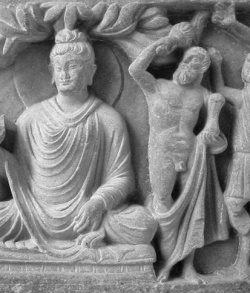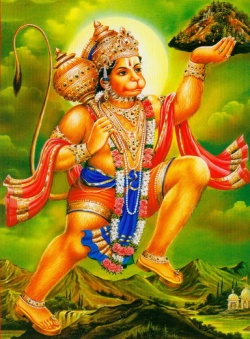Alexander in Gandara
In the Spring of 336, an army of Macedonians and Greeks invaded the Achaemenid empire, which suffered from a dynastic conflict. The Persians were able to keep their enemies away, but in 334 the new Macedonian king Alexander the Great joined his troops.
In November 333 and on 1 October 331, he defeated the Persian king Darius III Codomannus at Issus in Syria and Gaugamela in Assyria.
Our sources do not mention Gandarians in Darius' army, which can be explained in four ways:
(a) Alexander surprised the Persians before they had gathered their army;
(b) Darius had not recruited Gandarians;
(c) the Gandarians were known under an other name;
(d) Gandara was no longer part of the Achaemenid empire.
The first explanation is not plausible: more than five years had passed between the invasion and the decisive battle at Gaugamela. The second explanation is unlikely, too, because the Persian king usually recruited units from all countries.
It enabled him to show his Power to the enemies and the Persian elite (e.g., king Xerxes took many soldiers with him to Greece, even though some men must have been quite useless).
The third explanation may be correct, because we read about 'Mountain Indians', who are otherwise unknown. But probably the fourth explanation is the best, because it receives confirmation from the fact that the biographers of Alexander do not mention Persian satraps.
In the first months of 329, Alexander refounded Kapisa. It was called Alexandria and surnamed 'in the Caucasus' to avoid confusion with other Alexandrias. There must have been other towns, which for centuries remained recognizably Greek.
In 329-327, Alexander was fighting in Bactria and Sogdia; in 326, however, he was back in Gandara, where he met with Indian representatives who invited the Macedonian king to come to the Punjab.
Alexander divided his army: his friend Hephaestion led an army along the Cophen (through the Khyber pass) and reached the Indus;
Alexander took a more northerly route, along the rivers Kunar and Swat, where his men killed almost every Gandarian they met in a campaign that was little short of genocide.
During the War in the Cophen valley, the Macedonians captured a city named Peucelaotis (modern Charsadda). This may once have been the center of the Persian administration, but the historians who describe Alexander's campaign, describe it as an Indian town.
Again, this suggests that Gandara had become independent. Peucelaotis is known in Indian sources as Puskalâvatî, "the city of Lotus Flowers".

